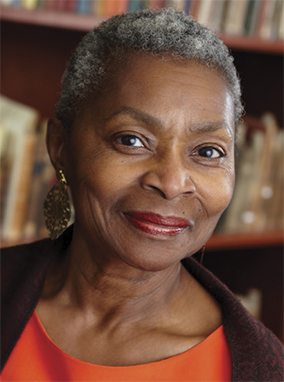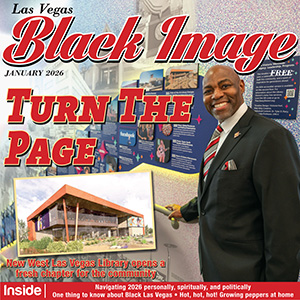HISTORIC BLACK VEGAS: 16th Street Baptist Church, Birmingham, Alabama
September 12, 2025 by agutting@reviewjournal.com
Filed under Community
BY CLAYTEE D. WHITE
Addie Mae Collins, Denise McNair, Carole Robertson, and Cynthia Wesley were murdered when their church was bombed on September 15, 1963. The large, prominent edifice, 16th Street Baptist Church is located downtown near Birmingham’s commercial district and City Hall. Built in 1911, this sanctuary served as the headquarters for civil rights mass meetings and rallies.
At one time, Birmingham was the most segregated city in the United States. (I wonder how that fact was documented.) Las Vegas was segregated to the extent that most, if not all Blacks lived on the Westside gradually moving into North Las Vegas before integration took place in 1960.
Birmingham’s focused desegregation campaign had taken place in the spring of 1963 and was a vicious fight. Students ranging from 8 years of age to eighteen were met by police who arrested thousands of children. The Sunday of the bombing was Youth Day at the church. I imagine that the excitement tinged with jittery nerves must have been thick in the air as young people prepared to take part in the adult service.
That program never happened — because just before 11 a.m., the time of Baptist services throughout most of the South during that time period, congregants were knocked to the floor. A bomb, planted by the KKK, exploded under the steps of the church.
The four young ladies — three of them 14 years of age, and one of them 9 — were in the basement. They died there.
Because of national politics and the FBI under J. Edgar Hoover, their murderers were not brought to justice until Robert Chambliss was convicted in 1977, Thomas Blanton in 2001, and Bobby Frank Cherry in 2002. Herman Cash died in 1994 having never been prosecuted for the murders.
This Birmingham campaign, like numerous others during the Civil Rights Movement, was staged to address issues that we have forgotten but may be on the verge of returning to if the country does not reawaken. Civil rights leaders pressured business owners to open employment to all races, urged school systems and city officials to end segregation, and fought to allow all to register and vote. Sit-ins and marches provoked mass arrests. When jails filled up, the police brought out water hoses and attack dogs. These efforts resulted in the ouster of the city Commissioner of Public Safety, Eugene “Bull” Connor, and ushered in the desegregation of public accommodations. And above all, paved the way for the Civil Rights Act of 1964 that prohibited racial discrimination throughout the country.
Las Vegas was in the midst of the desegregation of public accommodations as well but achieved that goal in 1960, over three years before the national Civil Rights Act. Black leaders threatened a march on the Strip, negotiated with organized crime and government officials for two weeks, and the doors opened. But this mandate occurred after small steps by activists, entertainers, and the Black community began at the dawn of the city. However, equal hiring practices did not begin until 1971 with the enforcement of the federal consent decree filed by Nevada’s first Black attorney, Charles Kellar.






